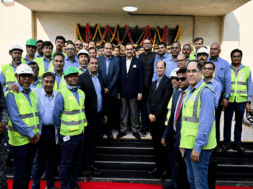
From Books to Bytes: Educational Tools and Digital Learnings
Prachi Vyas
The journey of education has traversed a remarkable path from traditional books to digital bytes, especially in a diverse and populous country like India. The advent of technology has revolutionized the way we learn, teach, and interact with knowledge. This transformation is not just a shift in medium but a profound change in the educational landscape, making learning more accessible, engaging, and personalized. This article delves into the evolution of learning with technology in India, highlighting key educational tools and their impact on modern education.
The Dawn of Digital Learning in India
The concept of digital learning in India began to take shape in the early 2000s. However, its roots can be traced back to the 1980s with the introduction of computers in schools through the Computer Literacy and Studies in Schools (CLASS) project. This early initiative aimed to familiarize students with basic computer skills, laying the groundwork for the digital learning environments we see today.
The widespread availability of the Internet in the 1990s and early 2000s marked a significant milestone in the evolution of learning in India. The internet democratized access to information, breaking geographical barriers and bringing learning resources to anyone with an internet connection. Indian e-learning platforms like BYJU, Vedantu, and Unacademy have revolutionized the concept of self-paced learning, providing a vast array of courses from basic arithmetic to competitive exam preparation. They have played a vital role during COVID-19 in helping children learn and stay connected.
The Rise of Learning Management Systems (LMS)
Learning Management Systems (LMS) have become an integral part of the educational ecosystem in India during the same time. These platforms facilitate the administration, documentation, tracking, and delivery of educational courses. LMS platforms like Moodle, Blackboard, and India’s own Educomp Solutions provide educators with tools to create and manage courses, assess student performance, and facilitate communication. They offer a structured environment that supports both traditional and online learning.
The shift from passive to active learning is one of the most significant changes brought about by digital tools in India. Interactive learning tools engage students in the learning process, making it more dynamic and effective. Tools like Extramarks, Toppr, and Quizizz turn traditional quizzes and flashcards into interactive games, promoting engagement and retention. These platforms often incorporate gamification elements like points, badges, and leaderboards to motivate students and enhance their learning experience.
Virtual Classrooms and Collaboration Tools
The COVID-19 pandemic accelerated the adoption of virtual classrooms and collaboration tools in India. Platforms like Zoom, Microsoft Teams, and Google Classroom became essential for continuing education during lockdowns. These tools enable live, interactive sessions, fostering a sense of community and collaboration among students and teachers. Features like screen sharing, breakout rooms, and real-time feedback simulate the traditional classroom environment while leveraging the advantages of digital connectivity.
Artificial Intelligence & Education
Whoa! Here is the most GenZ thing, Artificial Intelligence (AI). It is poised to transform education in India by providing personalized learning experiences. AI-driven platforms like Embibe, Doubtnut, and Mindspark analyze student performance data to tailor content and instruction to individual needs. Adaptive learning technologies adjust the difficulty level of tasks based on a student’s progress, ensuring an optimal learning pace. AI also powers virtual tutors and chatbots, offering instant assistance and support to students outside regular class hours.
The Role of Mobile Learning
The ubiquity of smartphones has made mobile learning an essential component of modern education in India. Mobile apps provide flexible and on-the-go learning opportunities. Platforms like BYJU’S, Khan Academy’s mobile app in Hindi, and the NPTEL app for accessing IIT courses exemplify the power of mobile learning. These apps often incorporate multimedia content, interactive exercises, and real-time feedback, making learning more engaging and effective.
As technology continues to evolve, the future of digital learning in India holds exciting possibilities. Developing more of sophisticated AI and machine learning algorithms will enhance personalized learning, providing tailored educational experiences to each student. Moreover, the rise of the metaverse could create entirely new learning environments, blending physical and digital worlds seamlessly.
The Dark Side
Despite the numerous benefits, the transition from books to bytes also presents challenges in India. Digital divide issues persist, with unequal access to technology and internet connectivity among socio-economic groups. Ensuring data privacy and security is another critical concern, as educational platforms collect vast amounts of personal information (I shall discuss data privacy and security further in the series). Additionally, the effectiveness of digital tools relies heavily on the quality of content and instructional design. Educators must be adequately trained to effectively integrate these tools into their teaching practices.
The evolution of learning from books to bytes has transformed education in profound ways in India. Digital tools and technologies have made learning more accessible, engaging, and personalized, breaking down traditional barriers and opening up new possibilities. As we continue to embrace these innovations, it is essential to address the challenges and ensure that the benefits of digital learning are equitably distributed. The future of education is undoubtedly digital, and with thoughtful implementation, it promises to create a richer, more inclusive learning experience for all in India and the world.














